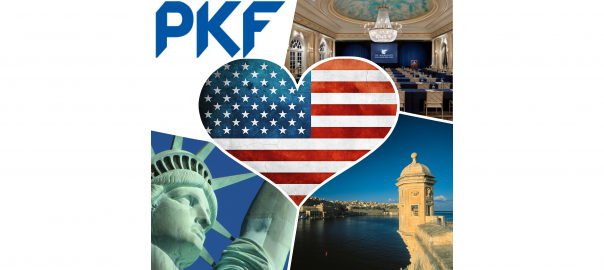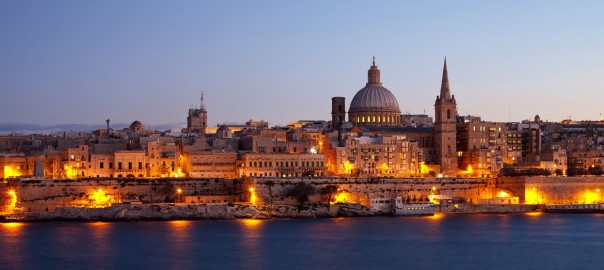Danielle Hermansen, of PKF Malta, discusses recent developments in the insurance market and latest event for promoting Malta, as a domicile of choice for European Captives in October 2016 – New York, the success of the industry’s latest events and what essential elements remain talking points across the financial landscape
- What was the event and why was it held?
PKF Malta sponsored a Captive Owners Summit on 31 October 2016, being the third initiative in its kind this year in New York. This event was one of a series of events in the PKF Malta calendar with the aim of promoting Malta as a domicile of choice. This Captive Owners Summit, organised by Captive Review, is a highly exclusive learning and networking event for US-based leading captive owners. It offered a unique opportunity to network and share ideas with industry peers in a safe and intimate environment where insurance buyers are proficient and lead the content.
The event was hosted at the prestigious Essex House, where an innovative approach to networking was introduced, having delegates attending a series of in-depth roundtable sessions. PKF Malta was invited to host the “Writing European Risk Through a Captive” during the full day event. The event was spread over 15 topics, for which PKF Malta had the privilege of hosting two round tables featuring European Risks. Other sought after topics included “Using Your Captive As a ProfitCentre ”, “Self-Procurement Taxes and Re-domestication Pressures” and “Bringing Multi-national Employee Benefits Into Your Captive”.
- How successful was the event? Why?
The round table linked to Writing European Risks, having the author as the speaker, discussed a number of pertinent points connected with insuring European risks. This pointed to a long list of benefits of Malta as a domicile of choice in Europe in particular in view of its Protected Cell Companies Legislation. Both roundtables where successful and in-depth discussions centred on how Cells may be used. Most of the Captive Owner representatives present were still in-tuned on using fronting arrangements for their European risks. Many where pleased to learn of an alternative solution to using fronters, namely that of creating insurance Cells in Malta to satisfy this purpose. Some were curious to know what they should look out for and finally what the benefits would be for them if they consider Malta. With fronting arrangements becoming more onerous and fronters in Europe becoming more choosy following Solvency II, this was seen as a viable option.
- Did Solvency II discussions feature in the Round Tables?
Solvency II was a heated topic amongst participants at the summit, surfacing repeatedly during both roundtables, including a discussion on the future ramifications of Brexit. Solvency II is the result of a decade of anticipation to the European Union’s harmonisation of laws governing the insurance industry. The new regime came into force in January 2016, with insurance companies across the EU having to submit their Day 1 and QRT Reporting to their respective regulators. It is accepted that insurers and insurance managers invested in human resources in order to embrace this new regime, while finding a way to justify the costs of implementing an internal model or alternatively scale down to the standard model. Once the emphasis on the new regulatory regime is fully embraced it is expected to become second nature to the day to day workflow, then one hopes that the benefits of solvency II will start being appreciated even more. One hopes that the risk based approach of solvency II will act as a catalyst for risk managers overseeing how capital is best allocated and hence more aligned to underwriting criteria.
- What other main topics featured in discussions?
Cyber risk was by far the most sought after topic of the day so that industry specialists offered their experiences on how best to handle this risk. While the majority noted that insurance was in place, they all agreed that the limits in place are by far too low to cover an actual full scale event. The debate evolved on the need for the risk managers to first see how they evaluate the cyber risk policy, then approach reinsurers accordingly, this albeit representing the ideal scenario achieved by some, possess better leverage in their negotiations with their reinsurers.
- How would you describe the overall experience of the Summit?
This event was well received and attracted a gathering of US-based risk and insurance professionals playing an integral role in directing their corporate captive. The event also attracted heads of State like the State of Vermont and Consultants and Risk Management specialists such as Spring and Beecher Carlson. More importantly, it also gave the opportunity for participants to meet a number of Captive Owners, Fortune Global 500 list, some in the top 100 list, who shared their invaluable experiences and innovation utilised in their Captives. Without any doubt, with the collaboration of Finance Malta, this event served as a platform to raise the profile of Malta as an insurance domicile, to establish leads of interest to set up in Europe and to create new contacts within the market. PKF Malta are pleased that the event created interest in placing Malta squarely on the radar considering the merits of other European options.
Part of the services PKF Malta offers includes a core Internal and External Audit service to the insurance industry, so we work closely with specialised service providers within the local industry. Being an integrated member firm of PKF International, we also work closely with 120 offices to deliver specialised technical solutions to the local insurance industry. We have the ability to give a tailor-made service which goes beyond mere compliance to provide a whole range of flexible services, the likes of which larger consultancies may find harder to achieve.
Earlier this year, PKF staff also attended the SIFMA – Insurance and Risk Linked Securities Conference in New York, taking the opportunity to discuss further the emerging trend concerning the ILS market in an effort to expand their products to cater for a more diverse range of cedents such as Captives. It goes without saying that the ILS provides a means by which the Captive may now also transfer its catastrophe risks, other than solely relying on the traditional reinsurers. This vehicle is still gathering momentum, in the same way that the non-traditional use of ILS’s for embryonic cat risks such as cyber risk and operational risk. It is evident that opportunities for growth in US market are ripe for Malta in its policy to partake of the growing market.


